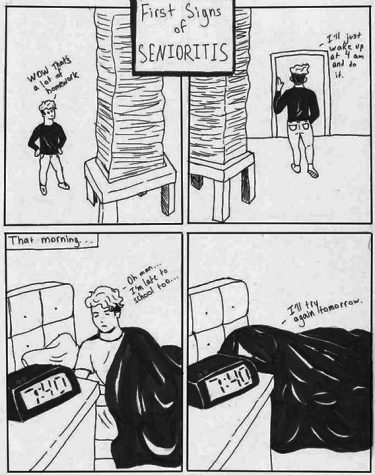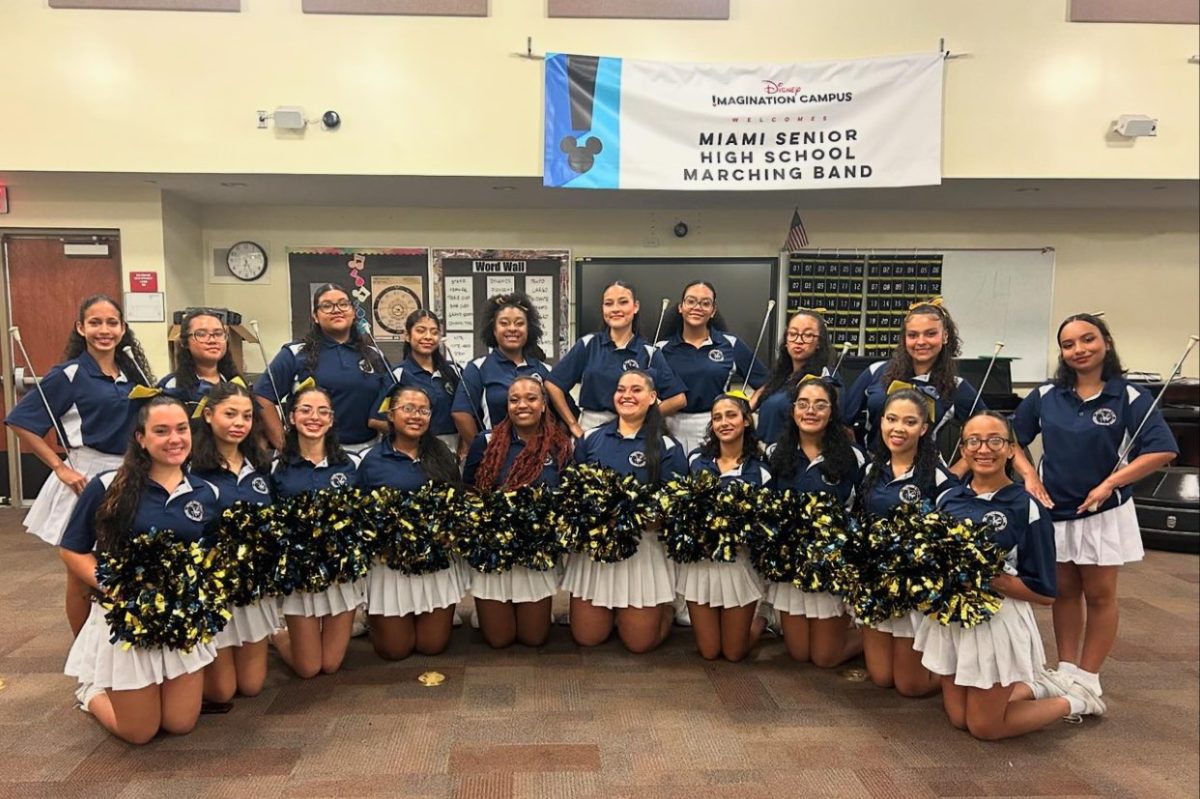Got Senioritis?
April 3, 2019
“Missing one more day won’t hurt…”
“If I’m going to be late, I might as well be EXTRA late…”
“What does it matter? I’m graduating soon…”

These are some common thoughts of seniors towards attending school these days. Senioritis is real, and for most seniors, it’s the common disease that creeps up as the school year comes to an end.
Senioritis is no joke, and as it gets worse, administration and teachers have no choice but to step in. U.S. Government and Economics teacher Mr. Waldo Rodriguez takes senioritis into his own hands by sending students to CSI (Indoor Suspension), or even worse, a referral. “I usually start with detentions and a call home,” he said.
Science department chair and AP/ Honors Chemistry teacher Dr. Hueck believes that a call home usually does the job well. “Seniors must realize that receiving their diploma could be at risk,” he stated.
CSI Instructor Mr. Miranda, who often has seniors come to his classroom for indoor suspension, said, “Those with senioritis need to focus on their goals and remain focused to graduate. If you’ve come this far already, why not finish strong?”
“Having senioritis can be avoided by staying focused and working hard till the end of one’s high school career,” said Key Club president Jody Martinez.
Senioritis takes many forms
Jody Martinez, Key Club president, sees it when someone starts slacking in class because “they think that as a senior, they are done with their high school career.”
To senior Brandon Barrionuevo, “Senioritis is a mass phenomenon where the average seniors stop receiving dopamine from participating in school activities which causes students to put in less effort.”
Even though the school year hasn’t finished, some students already believe that they have a case of senioritis. Senior Charlees Mejia states, “I don’t see myself making as much effort anymore in school as I did in the beginning of the year.”
Brandon Barrionuevo, who has never gotten the best grades in high school, says he stopped seeking success from something that hasn’t benefited him.
“Senioritis is when you start not caring about school. At first, it’s simple things like missing an assignment but then it grows from there,” said senior Michael Garcia.

Who and what is at risk?
Senioritis is no laughing matter when seniors consider the risk. Principal Mr. Valdes says the most important thing at risk is their high school graduation. “So much more can be at risk, but it’s very important to graduate high school with your class,” he said.
For senior Michael Garcia says the largest risk is that “when you slack so hard, your grades begin to tank. This can even cost you your chance to get into the college of your choice,” he said.
Some people are more at risk than others. Kevin Escoto, Senior Class historian, said, “If you are someone who doesn’t have senioritis and start hanging out with those who have senioritis, you’re going to start seeing yourself fall into their habits, and the greatest risk would be letting go of all your hard work.”
Dual Enrollment and AP teacher Dr. DeNight said that students who “don’t do so much after school” are the kids who normally get affected the most by senioritis. “Kids who work and class or club officers are the ones who have learned to manage time so well that senioritis doesn’t really affect them.”
Mr. Miranda says that this school year there has been a wide variety of students who have senioritis. “All kinds of students have been affected,” he said. “However, in the past, senioritis was a real issue for low-achievers.”
How can it be fixed?
Senior Class president Amanda Echevarria believes anyone can fix their case of senioritis by reviewing their goals and giving themselves a reality check. “You need to realize what is at stake,” she said.
“It can be avoided or fixed by finding the motivation to keep going and surrounding yourself with people who will encourage you to keep going,” said Senior Class secretary Brianna Arroliga.
Senior counselor Mr. Cuevas said that seniors can make a comeback by “attending tutoring on weekdays and Saturdays.” He also believes that seniors should “push as hard as they can” during the final months of school.
CAP Advisor and former English teacher Ms. Puentes said, “Organizing yourself and prioritizing help students get back on track, and speaking to a trusted teacher or advisor helps too.”
On the other hand, one senior who chose to stay anonymous believes that senioritis is not fixable in any way once you have it “because it rises from a lack of incentive to continue working hard since some already have their college acceptances.”




